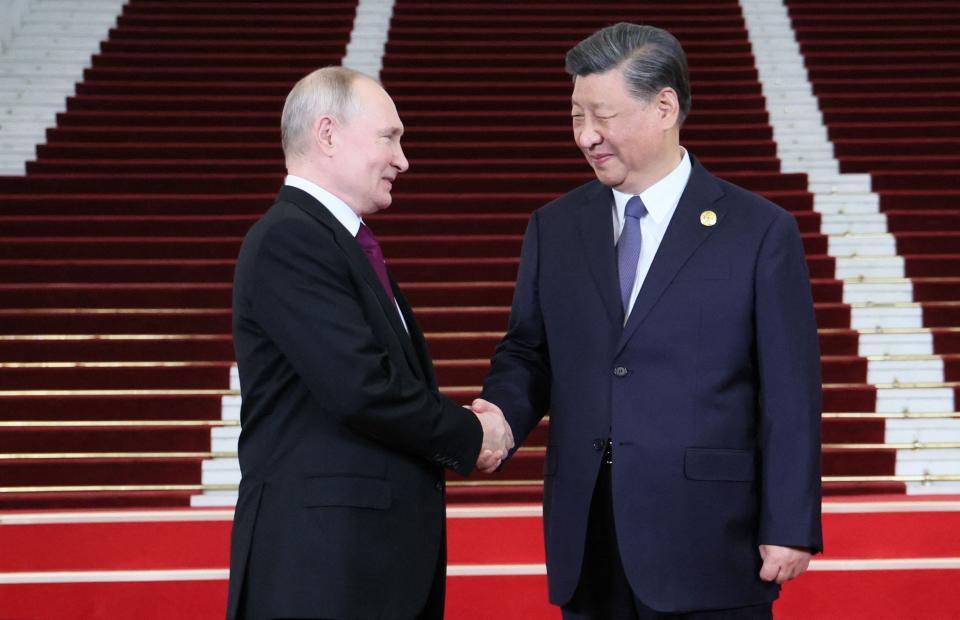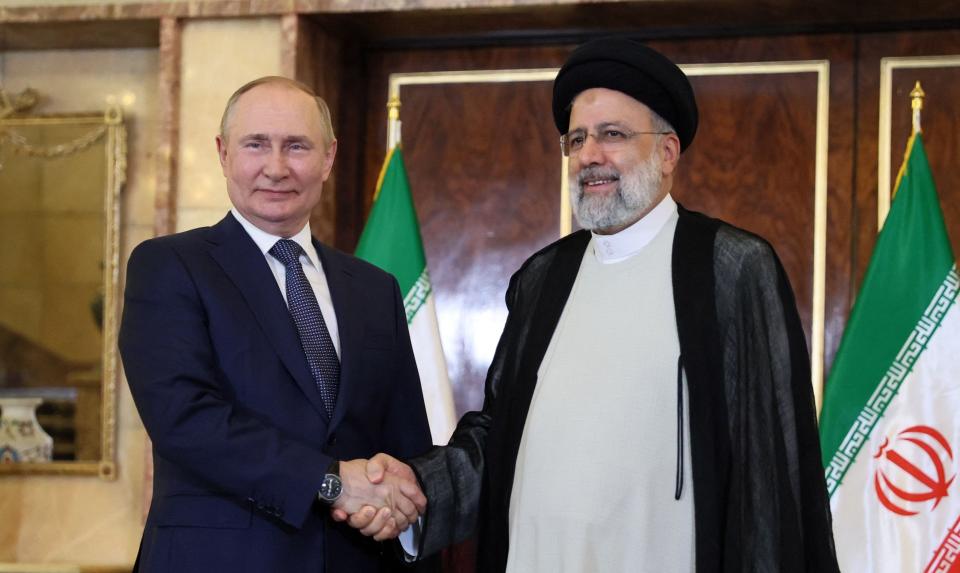China and Russia are outplaying America. Game theory shows the infinite way out.
Until we learn to develop foreign policies that consider their long-term unintended consequences, we will continue to produce endless fiascos contrary to our national interest. Game theory explains why U.S. strategies for dealing with China, Iran and Russia have been ineffective and self-defeating, producing the most destabilizing environment for conflict since World War II. Game theory also shows what is necessary, even if painful, to restabilize the world.
Game theory postulates that there are two kinds of games – finite and infinite games.
Finite games have conflict rules and set boundaries. There are winners and losers. Sports, board games and most small wars offer good examples.
Infinite games are not structured and have no agreed to rules of engagement. The conflict continues indefinitely until one of the players runs out of will and/or resources. The Cold War and the American Revolution are good examples: The Soviet Union and the British ran out of will and resources.
From Vietnam War to Russia-Ukraine war
The Vietnam War shows what happens when one side uses finite-game strategy and the other infinite-game strategy. China counseled Ho Chi Minh on the impulsiveness and continuous need for short-term political gratification of U.S. foreign policy. North Vietnam’s war of attrition exhausted U.S. political will.
China’s approach to infinite-game conflict reflects patience and a long-term perspective. In a few decades the Chinese went from the cheap labor provider of choice to our largest economic competitor. They worked their way into many thousands of supply chains. Became experts in industrial piracy. Sent their children to the best universities. Exported their people to every corner of the world.
Is Trump right about World War III? Here's why we should be worried.
Our lack of an infinite-game strategy for dealing with the Chinese is reflected in our focus on hampering, rather than competing, with them. We deny them advanced-chip technology, take them out of some of our supply chains and make unserious threats about Taiwan.
Henry Kissinger, President Richard Nixon’s secretary of State and national security adviser who died last week at 100 (the only person to ever hold both roles simultaneously), could hardly have imagined the unintended consequences of waking this sleeping tiger.

Meanwhile, America's ill-considered finite game in Ukraine has helped the Chinese with their energy and materials vulnerabilities and handed them a major new customer and ally for their products.
As in Vietnam, the Russians like the Chinese understand that Ukraine is an infinite game.
From Russia-Ukraine war to Israel-Hamas war
Russian President Vladimir Putin’s goal has been to prevent Ukraine from joining NATO. No matter the cost. Russia has successfully defended the Donbas and Crimea, while fighting a war of attrition against inferior forces.
The war is a stalemate. Ukraine is in ruins. The long-term disastrous unintended consequences are in the economic relationships Russia was forced into with China, Iran and North Korea in response to the West’s persistent military support for the war.

Iran’s regime has been eager to back terrorist groups Hamas and Hezbollah to destabilize the Palestinian infinite-game conflict with Israel – and its own infinite game with the United States. Tehran knows that developing nuclear weapons would force Washington into the same infinite game we faced with the Soviet Union, ensuring the Iranian regime’s long-term survival.
That President Barack Obama and President Joe Biden pursued nuclear weapons agreements with Tehran shows that neither understands the game-theory ramifications of their policies. The Iranians were emboldened to expand their infinite-game destabilization agenda. Further efforts to bribe the Iranian regime into a nuclear deal with desperate concessions prove the point.
Which brings us to Iran, suspected of greenlighting the Oct. 7 Hamas horror show. Why such an odious, heinous attack? Why all the hostages? Why all the videos?
United Nations fails again. It gives cover to Hamas while abandoning Israel.
To deliberately force Israel into the brutal, but necessary actions being taken in Gaza. Then put the attention on Israel’s response in a well-orchestrated worldwide campaign of fake illegitimacy and equivalence to undermine the West’s political will for supporting Israel.
The Iranian regime, though very shrewd, might have miscalculated the psychological impact on all who saw the videos of Hamas' attack. The pure joy of dumb brute terrorists committing acts of pure evil cannot be unseen, preserved forever on social media.
Opinion alerts: Get columns from your favorite columnists + expert analysis on top issues, delivered straight to your device through the USA TODAY app. Don't have the app? Download it for free from your app store.
Perhaps World War II offers the best example of what happens when evil becomes a game strategy. Evil, a virulent pathogen, was eradicated because it was necessary – no matter the cost – and in the process ushering in a new world order, led by U.S. hegemony.
Iran’s export of evil will be eradicated in due course because it is necessary. No matter the cost. But to accomplish that we need the cooperation of Russia and China. Neither wants to be our enemy. Even so, they will be our competitors. What do we want? What are we willing to trade for it?
A complete reframing of our relationship with each is necessary. It’s in our national interest, even if painful.

Steven Myers, a Stanford University graduate, two-time Air Force veteran and recipient of the Federal Aviation Administration's Wright Brothers Master Pilot Award, was the first American since Charles Lindbergh to pilot an aircraft into the Russian Kamchatka Peninsula soon after the end of the Cold War. He formed one of the first post-Soviet era joint ventures and authored an Amazon bestseller, "Cross Winds: Adventure and Entrepreneurship in the Russian Far East."
You can read diverse opinions from our Board of Contributors and other writers on the Opinion front page, on Twitter @usatodayopinion and in our daily Opinion newsletter.
This article originally appeared on USA TODAY: Why US needs China and Russia to eradicate Iran's evil empire

